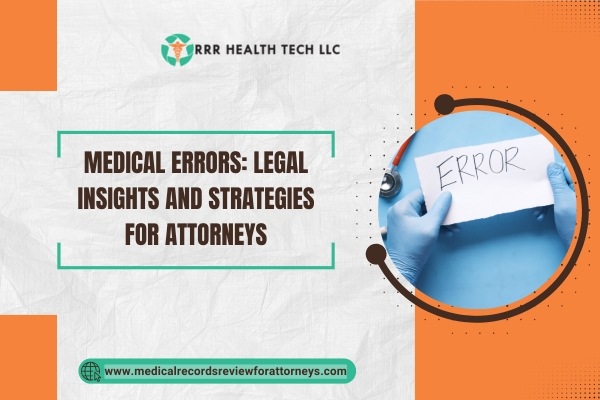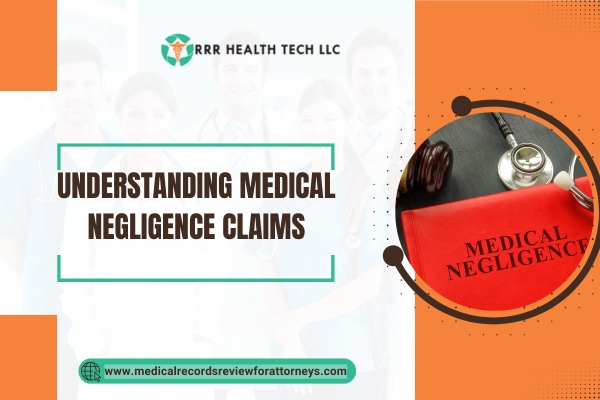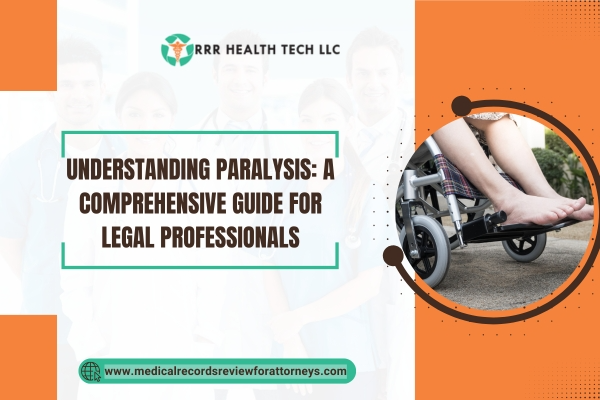
Introduction
The impact of medical errors on patients is immense while for healthcare providers, legal actions are likely to follow. This creates significant problems in healthcare. For a practitioner to offer relevant help to a client who has suffered an error, it is vital to understand its intricacies. With the help of this article, we hope to provide attorneys guidance on medical errors and beyond- the importance of taking and reviewing medical records, patient history, and planning regarding managing the cases.
The Scope of Medical Errors
Statistics on Medical Errors
According to the National Academy of Medicine, medical errors are the third leading cause of death in the U.S., accounting for over 250,000 fatalities annually.
A recent study in 2024 indicates that nearly 1 in 10 patients experience a medical error during their hospital stay.
Common Types of Medical Errors
Misdiagnosis or delayed diagnosis
Surgical errors
Medication errors
Infections acquired in healthcare settings
Legal Implications of Medical Errors
Understanding Liability
Establishing liability in medical error cases involves assessing the standard of care, identifying negligent actions, and determining causation.
Types of Claims
Medical malpractice claims
Wrongful death claims
Claims against healthcare facilities for systemic failures
Understanding the Importance of Medical Records Review
What is Medical Records Review?
• It is the detailed examination of medical records to identify inconsistencies, undue delays in treatment, and the severity of injury sustained due to medical negligence.
For Attorneys
• Aids in proving the case in question.
• Helps recreate the factual sequence of activities related to treatment.
Most Common Medical Errors
• Communication Problems: Gaps in verbal exchange between doctors and other medical providers can lead to serious mistakes in the treatment of patients.
• Insufficient Training: Gaps in the teaching and training of medical personnel can lead to inappropriate execution of procedures and patients being inappropriately managed.
• Systemic Problems: Too much work with too few people can lead to a situation where doing things wrong is far easier than getting them right.
Recommendation Strategies for Attorneys Dealing with Cases of Medical Error
• Evidence Collection: Obtaining full medical documents, medical witnesses, and testimonies from people who were there during the event helps create a strong case.
• Comprehending Medical Texts: Acquire knowledge concerning medical words so that you can talk to doctors and the jury on their level.
• Engaging the service of specialists in medicine: Bring in specialists to prove and substantiate allegations made against the care provided in relation to the accepted standard of care.
Case Studies
Case Study 1: Complications from Surgical Mistake
• Overview of the Case: A surgical error during a gallbladder removal led to complications for a 45-year old woman.
• Challenges: The defense perspective that these complications represented risk of surgery led to a murkier understanding of the case.
• Solutions: The attorney’s strategy relied upon a thorough examination of the medical records, which demonstrated a glaring lack of informed consent and deficient preoperative evaluations.
Case Study 2: Cancer Misdiagnosed
• Overview of the Case: A 60 year old man was diagnosed with a simplistic condition, which delayed his cancer treatment for an extended period.
• Challenges: The healthcare provider contended that the logic used for the diagnosis was reasonable given the information presented.
• Solutions: The attorney produced several medical records evidencing that there was no reason to miss identifying the cancer during the preliminary assessments.
Conclusion
The impact of medical errors is severe from the patient’s vantage point yet legally multifaceted. Having as deep an understanding as possible of what outcomes a medical records review could create is imperative in such instances for an attorney. To build a case for their clients, lawyers need to comprehensively examine medical records and monitor updates in cases of medical negligence.


